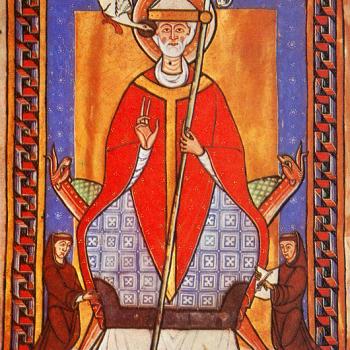I posted recently on Friedrich Engels’s On the History of Early Christianity, his 1890s text that actually makes some excellent historical points about the social and political contexts of the early church. On occasion, it’s actually… well, pretty funny.
As a historian, Engels had the enormous virtue of moving outside the library, to understand early Christianity though his own lived experience in the nineteenth century radical Socialist underground. He knew exactly what it was like to operate in a clandestine transnational movement of the lower class. Both were under constant observation by the police, and you never knew exactly who might be a spy or informer. Oddly, given his strongly anti-church opinions, Engels had something like a love for the early Christians, and he imagines talking to them as fellow-sufferers who came from exactly the kind of setting.
As he writes
The history of early Christianity has notable points of resemblance with the modern working-class movement. Like the latter, Christianity was originally a movement of oppressed people: it first appeared as the religion of slaves and emancipated slaves, of poor people deprived of all rights, of peoples subjugated or dispersed by Rome. Both Christianity and the workers’ socialism preach forthcoming salvation from bondage and misery; Christianity places this salvation in a life beyond, after death, in heaven; socialism places it in this world, in a transformation of society. Both are persecuted and baited, their adherents are despised and made the objects of exclusive laws, the former as enemies of the human race, the latter as enemies of the state, enemies of religion, the family, social order.
Engels, for instance, uses a quote from Ernest Renan: “If I wanted to give you an idea of the early Christian communities I would tell you to look at a local section of the International Working Men’s Association.” [The so-called First International]
Hah! says Engels. What can a mere academic know about the details of that kind of life?
I should like to see the old “International” who can read, for example, the so-called Second Epistle of Paul to the Corinthians without old-wounds re-opening, at least in one respect. The whole epistle, from chapter eight onwards, echoes the eternal, and oh! so well-known complaint: les cotisations ne rentrent pas — contributions are not coming in! How many of the most zealous propagandists of the [eighteen-]sixties would sympathizingly squeeze the hand of the author of that epistle, whoever he may be, and whisper: “So it was like that with you too!” We too — Corinthians were legion in our Association — can sing a song about contributions not coming in but tantalizing us as they floated elusively before our eyes.
More seriously, his comments on the turbulent early Christian world merit quotation:
In fact, the struggle against a world that at the beginning was superior in force, and at the same time against [amongst?] the innovators themselves, is common to the early Christians and the Socialists. Neither of these two great movements were made by leaders or prophets — although there are prophets enough among both of them — they are mass movements. And mass movements are bound to be confused at the beginning; confused because the thinking of the masses at first moves among contradictions, lack of clarity and lack of cohesion, and also because of the role that prophets still play in them at the beginning. This confusion is to be seen in the formation of numerous sects which right against one another with at least the same zeal as against the common external enemy.
So it was with early Christianity, so it was in the beginning of the socialist movement, no matter how much that worried the well-meaning worthies who preached unity where no unity was possible.
In Revelation above all, Engels sees a world closely parallel to his own, especially in its radical sectarianism:
Was the International held together by a uniform dogma? On the contrary. There were Communists of the French pre-1848 tradition, among whom again were various shades: Communists of Weitling’s school and others of the regenerated Communist League, Proudhonists dominating in France and Belgium, Blanquists, the German Workers’ Party, and finally the Bakuninist anarchists, who for a while had the upper hand in Spain and Italy, to mention only the principal groups. It took a whole quarter of a century from the foundation of the International before the separation from the anarchists was final and complete everywhere and unity could be established at least in respect of most general economic viewpoints. And that with our means of communication — railways, telegraph, giant industrial cities, the press, organized people’s assemblies.
There was among the early Christians the same division into countless sects, which was the very means by which discussion and thereby later unity was achieved. We already find it in this book, which is beyond doubt the oldest Christian document, and our author fights it with the same irreconcilable ardour as the great sinful world outside….
(He dated Revelation to 67-68, rather than to the mid-90s, which is the modern scholarly consensus).
You certainly don’t have to agree with every one of Engels’s comments and criticisms, but the whole piece is well worth reading.












